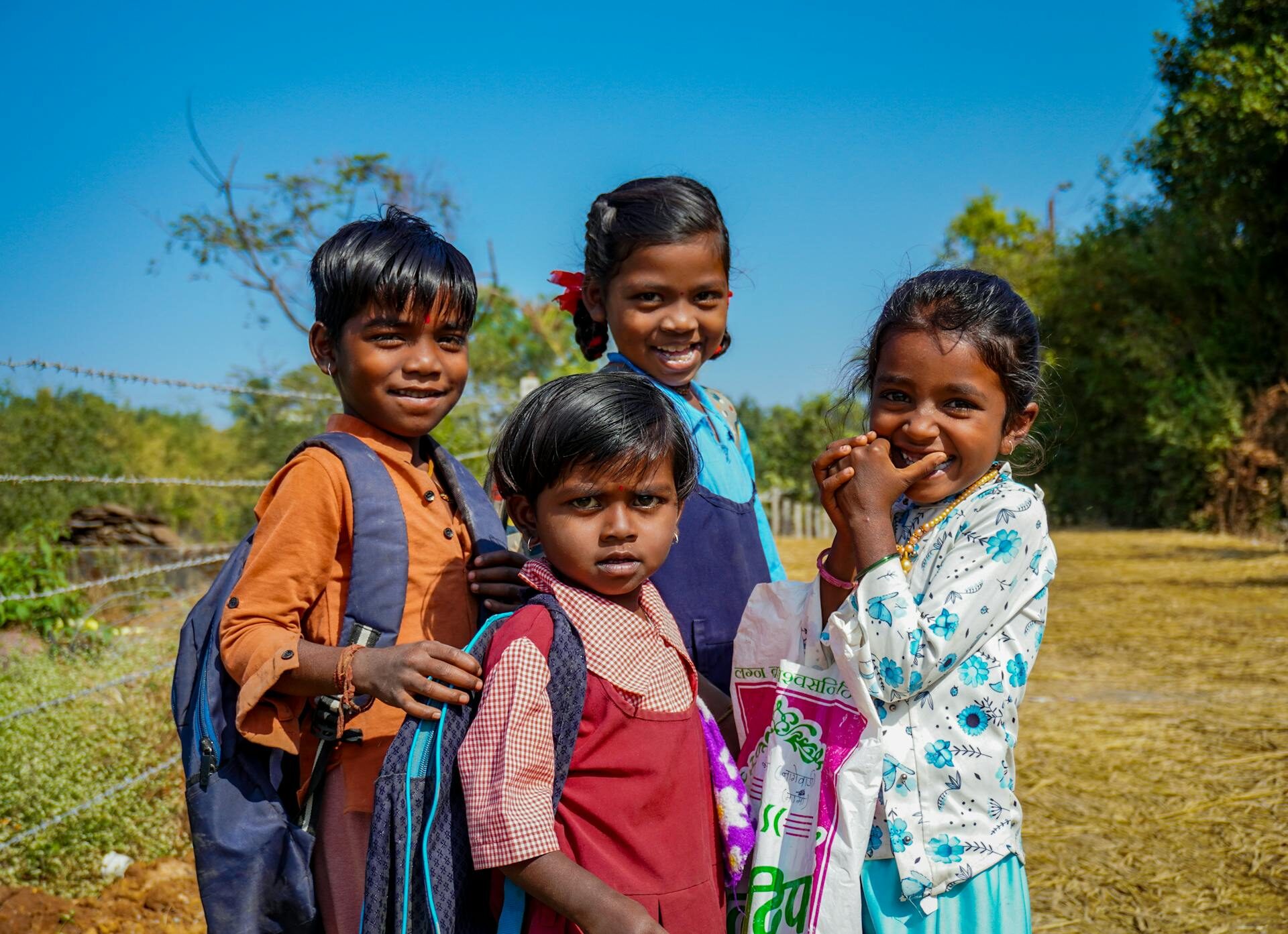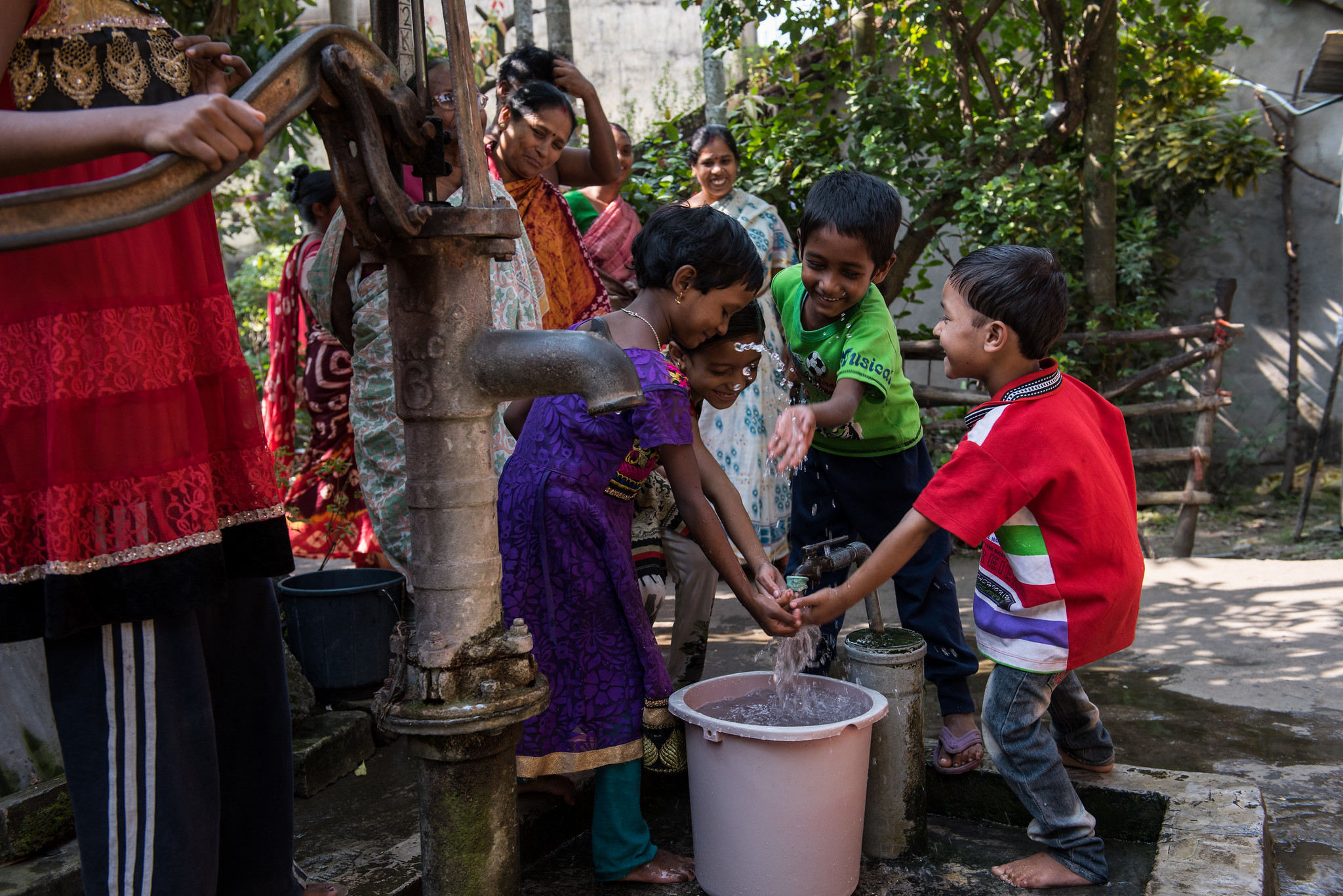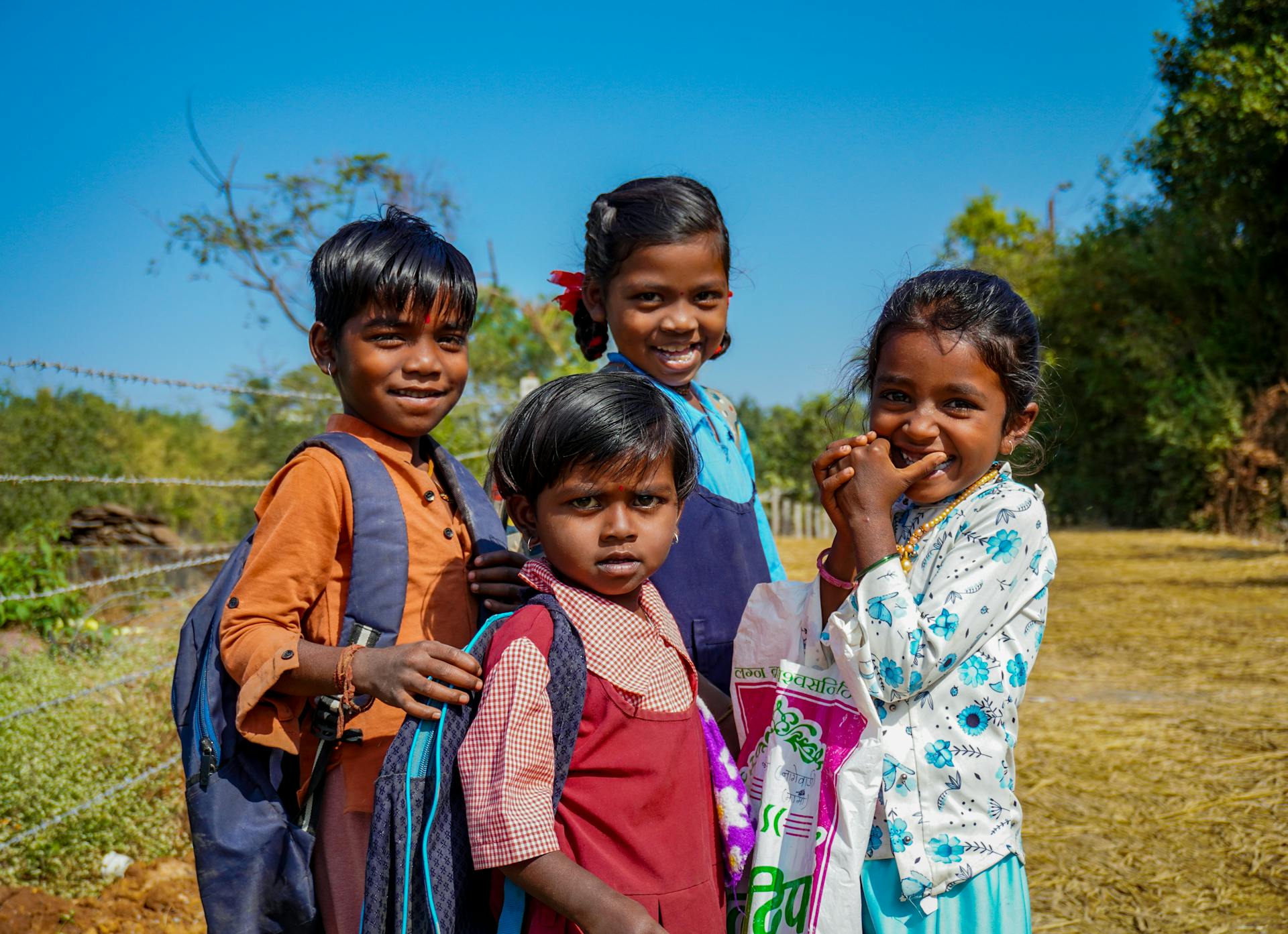Ranipet, Tamil Nadu, India
In collaboration with

March 2025 – October 2025
We provide access to water and sanitation, enable hygiene practices, and implement Information, Education, and Communication (IEC) strategies on good hygiene practices.
Objectives
- Provide schools and the surrounding community with sustainable access to water, sanitation, and handwashing facilities.
- Promote behaviour change to ensure long-term sustainability.
- Implement Information, Education and Communication (IEC) strategies in schools and communities.
Beneficiaries
1,644 direct
School students (335 boys and 1,309 girls)
6,576 indirect
Families of the students and school staff

On the Ground
Ranipet is a socially and economically disadvantaged district in the state of Tamil Nadu, facing a lack of access to safe water and adequate sanitation. Promoting proper hygiene practices remains a significant challenge, especially in rural communities.
Schools in the region often suffer from insufficient drinking water supply and non-functional or poorly maintained toilets, which disproportionately affects adolescent girls who are unable to manage their menstrual hygiene with safety and privacy. The absence of proper handwashing facilities leads to the spread of diseases, particularly diarrheal illnesses, contributing to high rates of malnutrition and delayed cognitive development. All of this results in high school absenteeism rates, especially among girls.
The two public schools involved in this project – Government Girls Higher Secondary School and Government Higher Secondary School in Kalavai – serve over 1,640 students and face severe infrastructure challenges. There is a significant disparity between the number of students and the available sanitation services. Both schools fail to meet the standards of the Swachh Vidyalaya (Clean School) programme, an initiative launched by the Government of India in 2014 as part of the national Swachh Bharat Abhiyan (Clean India) campaign.
Urgent action is needed to provide additional sanitation facilities, install handwashing stations, and establish a Menstrual Hygiene Management (MHM) laboratory for adolescent girls.
In Detail
The added value of this project lies in its integrated approach to improving sanitation infrastructure, increasing access to safe drinking water, and disseminating knowledge on hygiene practices in schools. Additionally, the project includes the installation of a rainwater harvesting system to support aquifer recharge and environmental protection.
The project not only focuses on developing WASH infrastructure in schools and homes, but also on building intensive systems to ensure ownership and sustainability of the facilities. In addition to the improved infrastructure, great emphasis is placed on strengthening knowledge and promoting behavioural change around hygiene among students.
Improved facilities — such as newly constructed handwashing stations and toilets — play a key role in encouraging behavioural change among students. These enhanced facilities provide a clean and comfortable environment, raising awareness of hygiene. Accessible, well-equipped installations promote regular handwashing and proper sanitation practices, ensuring privacy, especially for girls. By addressing these basic needs, students develop a positive attitude toward personal hygiene, generating a lasting impact on their health and behaviour.
Strengthening School Management Committees (SMCs) is essential for maintaining WASH facilities in schools. Empowered SMCs actively participate in decisions regarding maintenance and infrastructure improvement. They oversee the proper use of resources for constructing and maintaining facilities, such as toilets and handwashing stations.
They also engage with the school community to raise awareness about preserving these facilities, fostering a sense of responsibility and ownership.
By involving SMCs in planning, monitoring, and maintenance, schools can establish sustainable practices that foster a clean and healthy environment for students.
The creation of a Child Cabinet in schools further supports the maintenance of these facilities. This student-led group can serve as a promoter and leader of hygiene practices in the school community. By involving students in decision-making, the project promotes responsibility and ownership.
The Child Cabinet can also take part in environmental protection through Mission Life, an initiative by the Government of India aimed at combating climate change. The Cabinet also aligns with Swachh Bharat Mission (SBM) 2.0, ensuring coherence and synergy in improving sanitation and hygiene awareness.
WASH education and awareness, together with Information, Education and Communication (IEC) strategies, are integrated into the school curriculum, ensuring continuous learning about hygiene practices.
The involvement of local partners — including the School Management Committee, local government, and the Child Cabinet — throughout the entire project cycle, from conceptualisation to post-implementation, ensures a school-led approach, alignment with local regulations, and continuity of operations. This collaborative model fosters ownership, promotes sustainability, and enhances the project’s overall impact on improving school sanitation and knowledge dissemination.
Sustainability Outlook
This project prioritises sustainability. It extends beyond infrastructure to focus on behavioural change and the integration of best practices, ensuring community ownership and long-term impact.
By strengthening School Management Committees (SMCs) and Child Cabinets, schools can establish sustainable practices that maintain a clean and healthy environment for students and ensure long-term viability, empowering children and communities to maintain WASH facilities over time.
Moreover, the interventions are designed to strengthen existing government systems, ensuring long-term sustainability. Government stakeholders will be involved from the outset and closely engaged throughout the project to ensure accountability and continuity upon its completion.
Constructing or renovating toilets in schools is relatively simple, but making them functional and used requires a shift in mindset and behaviour across a large group of children, as well as strong commitment from educators.



